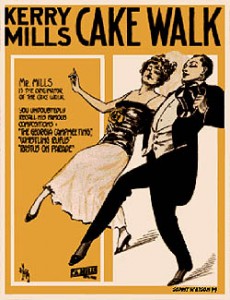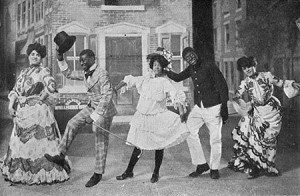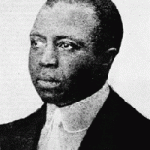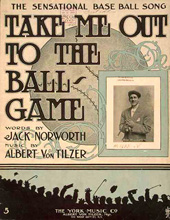How did music in America get hot, when it started out sounding so straight? What was shaking things up on the music scene a hundred years ago?
Imagine yourself walking down a city street, listening to your iPod, in about 1908. You might be surprised by the variety of music available in those days—long before there were any recordings of jazz and blues. Your playlist back then could have ranged from a genteel waltz to the nitty-gritty sound of black vaudeville.
The music publishing district in lower Manhattan, nicknamed Tin Pan Alley, was cranking out volumes of sentimental popular songs about motherhood, unrequited love, and newfangled gadgets like telephones and automobiles.
A couple of dance fads shook things up. The black vaudeville team of Williams and Walker sparked a craze called the Cake Walk. The press touted it as a disgusting “sex dance," but everyone in America, from the upstairs maid to the Vanderbilts, just had to learn it.
A few years later, the piano rags of Scott Joplin made the Cake Walk ancient history. And ragtime turned into far more than a dance fad. It’s raggedy rhythms found their way into the heart of American music and set the scene for a new music just around the corner.
Jazz came strutting out of the vaudeville stage, stealing melodies from the song factories of Tin Pan Alley. Sousa-style marching bands gave it a brassy edge. And from the great tide of African American spirituals, it caught "the blues."
This week on Riverwalk Jazz The Jim Cullum Jazz Band gives the "hot rhythm treatment" to rags, parlor songs and spirituals composed a century or more ago. From Jack Norworth's "Take Me Out to the Ball Game" to Kerry Mills Cakewalk "At a Georgia Camp Meeting" and Scott Joplin's "Maple Leaf Rag," we'll explore the roots of hot jazz in a century of song.
Photo credit for Home Page: "Take Me Out to the Ball Game" sheet music, 1908. Image courtesy American Treasures of the Library of Congress.
Text based on Riverwalk Jazz script by Margaret Moos Pick ©2012





